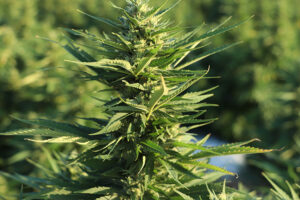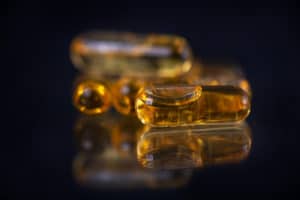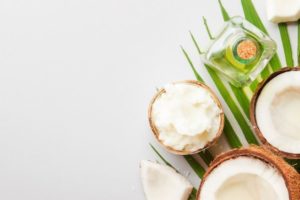An area of cannabidiol (CBD) research that has been recently picking up steam is its effect on appetite. Even though eating is an innate survival tool that keeps your body in its optimal condition, many of us have a complicated relationship with food.
Various genetic and environmental factors play a part in determining how often we eat, what we eat, and the amount of food we eat. Considering how essential a healthy diet and appetite are, can CBD support this aspect of our wellness?
Does CBD oil make you hungry? Yes and no. According to various contradicting reports, CBD could either suppress or stimulate your appetite. The science behind it, while slightly complicated, is quite interesting. Read on to discover all you need to know about the role CBD can play in your appetite.
How Your Appetite Works
Before we can touch on CBD’s role in your appetite, it’s better to understand how your body functions. First of all, hunger and appetite are two different things.
Hunger refers to your need to eat, while appetite is the desire to eat. When you feel hungry, you need food. It is your appetite that determines the types of food you will find appealing.
There are a lot of factors that govern a person’s appetite. These factors include environmental, physiological, and psychological. Even how you feel and think will affect how much and how often you eat.
THC and Your Appetite
Most people know that THC doesn’t only get you high; it also makes you hungry. Reports show that we discovered the connection between cannabis and hunger as early as 300 AD. Today, we refer to it as the ‘munchies.’ As simple as it sounds, it turns out there is actually a bit of science behind it.
You get the ‘munchies’ because THC binds and activates the CB1 receptors in your endocannabinoid system. THC also makes you hungry by increasing ghrelin, a hunger hormone that increases your appetite.
While CB1 receptors are found in small concentrations in other areas of your body, they are primarily found in the areas of your brain that govern the way you feel about food.
For instance, CB1 receptors are found in the hypothalamus, an area of the brain that we consider to be the primary appetite regulator. The hypothalamus controls certain biological functions, such as thirst and hunger.
The difference between CBD and THC is in the way CBD interacts with your CB1 receptors. This difference means that CBD will not give you the ravenous hunger you experience with the ‘munchies.’ CBD can, however, influence and alter your metabolism. This effect could either suppress or stimulate your appetite, causing you to reduce food intake or see potential weight gain.
Does CBD Oil Increase or Decrease Appetite?
Most people looking for an appetite boost usually suffer from either an illness or medication side effect that prevents them from feeling hungry. Here is where CBD oil and hunger can be a perfect match.
CBD can increase your appetite in a few indirect ways. For starters, its ties to appetite stimulation could be down to the influence it has on your serotonin receptors. Instead of directly causing hunger, CBD can reduce symptoms of an upset stomach via its impact on 5-HT receptors.
The cannabinoid can also support homeostasis in your body and help you maintain your digestive health, leading to better gut health and a balanced appetite.
For some, balancing out and fine-tuning their endocannabinoid system is just what they need to achieve optimal metabolic health. CBD can stimulate your appetite by helping you do this.
CBD, the Endocannabinoid System, and Your Metabolism
CBD can affect your metabolism through its interaction with your endocannabinoid system. Instead of directly binding to the CB1 and CB2 cannabinoid receptors, CBD works indirectly, improving your endocannabinoid system’s overall efficiency.
The endocannabinoid system, in turn, affects various metabolic operations like nutrient transport and energy storage. Some research suggests that it also plays a role in managing insulin sensitivity.
The endocannabinoid system can also indirectly affect your metabolism by stimulating specific areas of your body, such as the endocrine pancreas and gastrointestinal tract.
It does this through 2-arachidonoylglycerol (2-AG) and anandamide (the bliss molecule), two compounds that interact with the CB1 and CB2 receptors. The impact felt extends to your fundamental biological mechanisms like appetite.
The Endocannabinoid System and Gut Health
Your gut doesn’t only store food; it also communicates with your brain and is connected to your immune function, mood level, inflammation management, and more. Your gut produces 90% of serotonin.
If you are experiencing regular constipation, digestive issues, exhaustion, loose bowel movements, and brain fog, your gut could need some fine-tuning.
Your endocannabinoid system influences your gut health in different ways. Some of those ways include:
- Controlling Inflammation: Mood swings, unexplained nausea, irregular periods, fatigue, bloating, and constipation are all signs of gut inflammation, which CB1 and CB2 receptors can help regulate.
- Moderating Digestion: When the food you eat can move freely through your digestive tract, you can better absorb its nutrients and eliminate problems like upset stomachs, excess stomach acid, and nausea.
- Improving Gut-Brain Communication: When your gut is not functioning correctly, your brain is affected. Similarly, when your brain is performing poorly, your gut is affected. Maintaining endocannabinoid system homeostasis can improve gut-brain communication.
Using CBD oil can significantly improve the state of your endocannabinoid system. This improvement will, in turn, cause a chain reaction in other aspects of your well-being, ultimately causing you to have a better appetite.
What To Incorporate With CBD Oil To Further Promote a Healthy Appetite
Though studies are ongoing, there are promising signs that show the impact CBD and CBD oil can have on improving appetite. To further ensure that you achieve the healthy appetite you desire, there are certain habits that you should consider incorporating alongside CBD use:
- Supplementing CBD Use With Omega Fatty Acids: The omega-3 fatty acids found in nuts, hemp seeds, and oily fish have plenty of benefits that promote a healthy appetite. Hemp seed oil is also an excellent source of plant protein and antioxidants.
- Staying Active: Exercise can release endorphins that make you feel good and encourage your body to want to refuel.
- Sticking To an Eating Schedule: While having a busy schedule can cause irregular eating habits, having a fixed eating schedule goes a long way in helping you develop a healthy appetite.
CBD and Appetite Suppression
On the flip side of the CBD coin, it could potentially suppress your appetite. CBD’s appetite suppression does, however, have less to do with its direct effect on the mechanisms that influence appetite.
Earlier, we mentioned that psychological factors could affect your appetite. For instance, when some people feel uneasy or under pressure, they might eat as a way to cope.
Considering how well CBD’s soothing effects have been documented, when such people take CBD products, it can lower their stress and anxiety, making it less likely that they’d turn to food to cope.
The Bottom Line
Considering how complex a person’s appetite is and the diverse effects CBD has on the endocannabinoid system, whether CBD or CBD oil makes you hungry is a question that is yet to have a clear answer.
Directly, CBD does not make you hungry. On the other hand, the overall support it offers your endocannabinoid system can affect your metabolism and help you maintain homeostasis. You could end up with optimal metabolic health that could, in turn, give you a normal, healthy appetite.
If you are looking for a more proven way of increasing your appetite, you are probably better off trying a different type of cannabinoid.
FAQ’s About CBD Oil and Hunger
Question: Why do I have no appetite?
Answer: A lack of appetite can be for various reasons, including hormonal, digestive, or medical conditions. Sometimes it could be a result of lowered immune system function.
Question: What else can I do to improve my appetite?
Answer: There are various things you could do to improve your appetite. Start by having frequent small meals throughout your day. You could also try having one large healthy meal a day, with snacks in between. Regular exercise could also help.
Question: Are there any side effects of CBD use?
Answer: Though CBD is mostly safe to use and is often well-tolerated, it can cause a few side effects. Some of the side effects you might experience include fatigue, drowsiness, and dry mouth. The CBD oil you are taking could also interact with other medications. It is always best to consult your doctor before taking to help with your appetite.
Question: Can CBD help you lose weight?
Answer: Some reports point to CBD’s role in helping people lose weight thanks to its effect on fat browning. While white fat can mess with your metabolism, brown fat burns calories, generates heat, and can help in weight loss.
CBD decreases the expression of specific proteins that create new fat cells in your body, stimulates the genes involved in breaking down fat, and increases mitochondria, which improves your body’s ability to burn energy.








